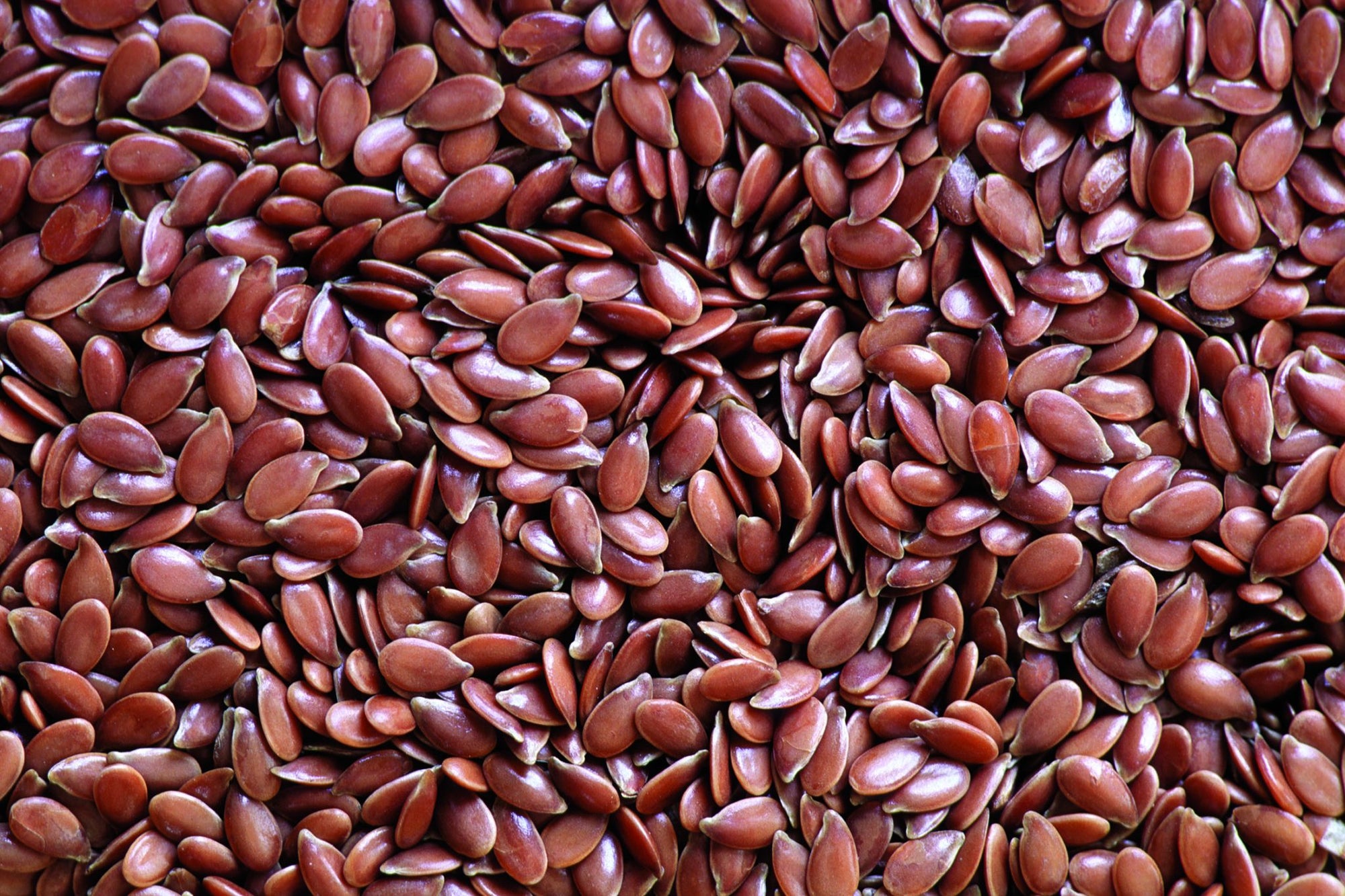
· By Shelia Morgan
Featured Horse Food Ingredient of the Month: Flaxseed
In cool northern climates, like Montana and Canada, grows a special teardrop-shaped seed known as flax. For centuries it has been helping horses supplement their essential fatty acids.
The small blue flowered plant, also known as linseed, is comprised of 42% oil, 20% protein and 28% dietary fiber. It is most widely used for its high concentration of a plant-based Omega-3 fatty acid called alpha-linolenic (ALA). Omega 3s are used by every cell in the body. Since horses can’t produce this essential fatty acid on their own, it usually needs to be supplied by the diet.
Feed supplemented with flax aides cell membranes, keeping them flexible enough to absorb other essential nutrients. With the recommended daily dosage of 25-75 grams, horses experience everything from improved skin, coat and hoof conditions, to long-term benefits like increased bone density and improved joint and tissue health.
As we will see, flax has a host of other health benefits too. We will break them down and show you how steadily introducing premium quality stabilized flax seed into your mare, stud or performance horse’s diet can enrich their well-being.
Supplementation Benefits
Flaxseed is generally ground or otherwise processed before it goes into feed since the seedpod is tiny and difficult to chew. The process is also known as “stabilizing.” It increases nutritional value and prevents rancidity. Often, it is pressed into linseed oil and the leftover flaxseed meal added to protein supplements.
The use of premium quality stabilized flax seed has other numerous benefits for horses, including:
• Calorie density from healthy fat, providing “cool energy”
• Reduction of inflammatory response and muscular lactic acid build-up, easing stiffness and soreness in performance and arthritic horses
• High Mucin content, which helps with gastrointestinal health
• Prevention of EIPM (nasal bleeding) in performance horses
• High volumes of soluble fiber that provides cool energy and digestive ease
• Antioxidant functions to scavenge free radicals
• Stimulation of the immune system to guard against equine endotoxemia colic, laminitis, and organ failure and ease ailments like arthritis, lupus and ulcerative colitis
• Synthesis of Omega 3 Fatty Acids (Alpha Linolenic) to produce DHA and EPA, which promote brain development and function
• Increased support to cells taking up oxygen
• Dramatic relief from skin allergies and irritants like sweet itch
Flax Benefits and Horse Breeding
The reproductive benefits in both broodmares and stallions are largely enhanced with supplemental omega 3s in their diets.
For instance, when you want to improve the consistency of a mare’s cycle, there is substantial research to suggest increasing Omega 3 fatty acids in the diet of mares is the way to do so. Thanks to an enhanced hormonal profile, pregnant mares also benefit largely from omega 3s. These benefits also transfer to the gestating foal, giving them a higher resistance to infection.
Increasing sperm count in a breeding stallion requires help from the long chain fatty acid DHA. Studies in Colorado University back the benefits of feeding studs a diet supplemented with flax.
Flax Benefits and High Performance Horses
During intense training and practice, horses rely on large doses of anaerobic glycolysis to keep their energy levels up. An accumulation of lactic acid is the most likely culprit of fatigue during these extreme energy bursts. Flax can help prevent this excessive build up. Supplementation also creates a balancing act, regulating the enzymes and hormones that effect speed and endurance.
Introducing Flax into a Horse’s Diet
Any feeding change, large or small, needs to be introduced gradually over about a week. This is especially important since the increased fat from flax will require some time before a horse’s digestive system can fully acclimate.
Additionally, Muenster’s premium quality stabilized flax feeds are balanced to account for the inverse relation between calcium and phosphorous.
Ultimately, it is difficult to ensure your horse gets a sufficient supply of omega 3s on pasture alone. Supplement their grass grazing with quality, stabilized flax feed in order to help them achieve optimal health and performance!
